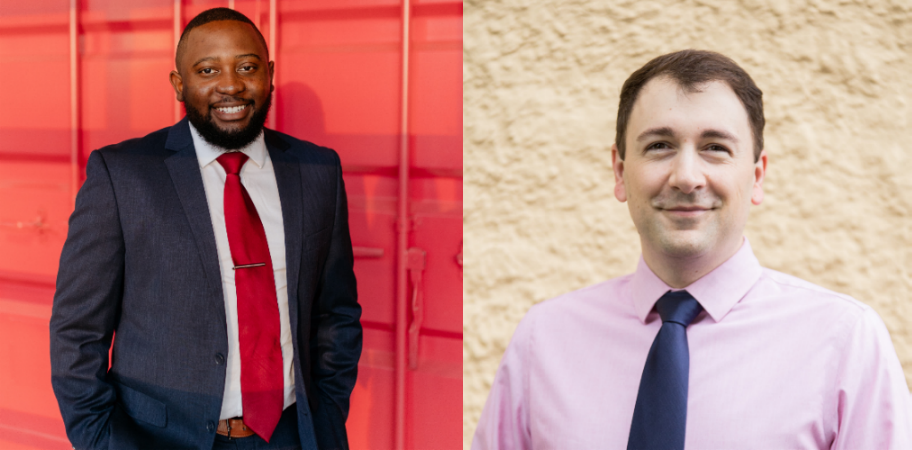In August 2021, we watched as Kabul fell to the Taliban, and then in the coming days, military cargo planes transported Afghan evacuees by the thousands out of the country. Over 122,000 people were airlifted abroad.
From there, evacuees were deployed to military bases worldwide, including eight in the United States. After health and safety checks, evacuees were transported to refugee cities to start anew. Indianapolis is one of those cities, and Cole Varga ’10 and Craig-Anesu Chigadza ’21of Exodus Refugee Immigration, are among the army of those devoted to helping the Afghan refugees resettle, acclimate, and find a new place to call home.
Over the past several months, Exodus—which has been helping refugees in Indianapolis for 40 years—has assisted approximately 330 Afghan evacuees who are resettling in Indianapolis, Muncie, Columbus, and Bloomington.
Early resettlement and economic self-sufficiency
According to Varga, who received his master’s in international relations from UIndy and serves as executive director of Exodus, the agency is primarily focused on the first 90 days of resettlement. That includes assistance with:
- Short-term housing
- Sustainable employment
- Social services (social security, health department, benefits, etc.)
- Cell phoneand Chrome book
- Bus training
Once Afghan evacuees have a roof over their head, Exodus begins preparing them for life in America. The 45-person staff at Exodus—which also includes UIndy grads Kiley Harmon ‘19, Paulin Baluisha ‘20 and Suihlei Tha ‘20—offers more than 20 different programs aimed at achieving economic self-sufficiency as quickly as possible. This includes everything from health navigation to English classes, to sewing circles and youth programs—and so much more. This secondary phase generally lasts three to eight months, depending on a refugee’s needs.
Connecting mental health services
Mental health services are another important component—and that’s where Chigadza’s efforts are focused. The recent UIndy graduate, who double-majored in psychology and international relations, joined Exodus this past June as a mental health advocate after completing an internship with the agency.
Chigadza says that he’s struck by how resilient the Afghans are: “They’ve been through unimaginable circumstances, but they keep fighting,” he says. “Their spirit keeps me going every day.”
But that resilience still needs nurturing.
“When they come to us, they’ve been through difficult times—trauma in many cases as they suddenly left all they had and knew,” he shares. “We want to help them navigate these challenges as they try to establish a new life.”
Chigadza works to connect evacuees with counseling, but it’s a challenging task. Translators and interpreters are in high demand. To help fill the gap, he is translating mental health materials into multiple languages for the main populations they serve, including Afghans, Burmese and Congolese.
UIndy: A great training ground
Both Varga and Chigadza agree that UIndy was a great training ground for their work today. “In classes, I learned more context around world conflicts—why they were happening, what role the U.S. has, etc.,” Varga says. “I gained a greater appreciation for how different life can be in other parts of the world.
Our professors also taught us how to be leaders and better communicators, which has helped as I lead my staff and others outside of Exodus understand the importance of our work.”
In addition to classroom training, Chigadza says he also gained skills, insight and perspective through his extracurricular activities, which included the Speech and Debate Team, student government, resident advisor, a presidential ambassador and the Paul Washington-Lacey Leadership Program.
“Everything I learned during my time at UIndy gave me the theoretical knowledge that now has practical applications in the real world,”says Chigadza.
Important work ahead
“We’re in the business of creating life-changing opportunities,” says Chigadza. “We’re trying to help refugees create a better life—it’s work that benefits both them and our community.” Varga agrees: “This work is one of the best things we do as a county and a community. We help people who have lost everything find a way to start life again, but we receive just as much from them. They add to the cultural and diverse fabric of our community, and they want and are able to contribute to our community.”

